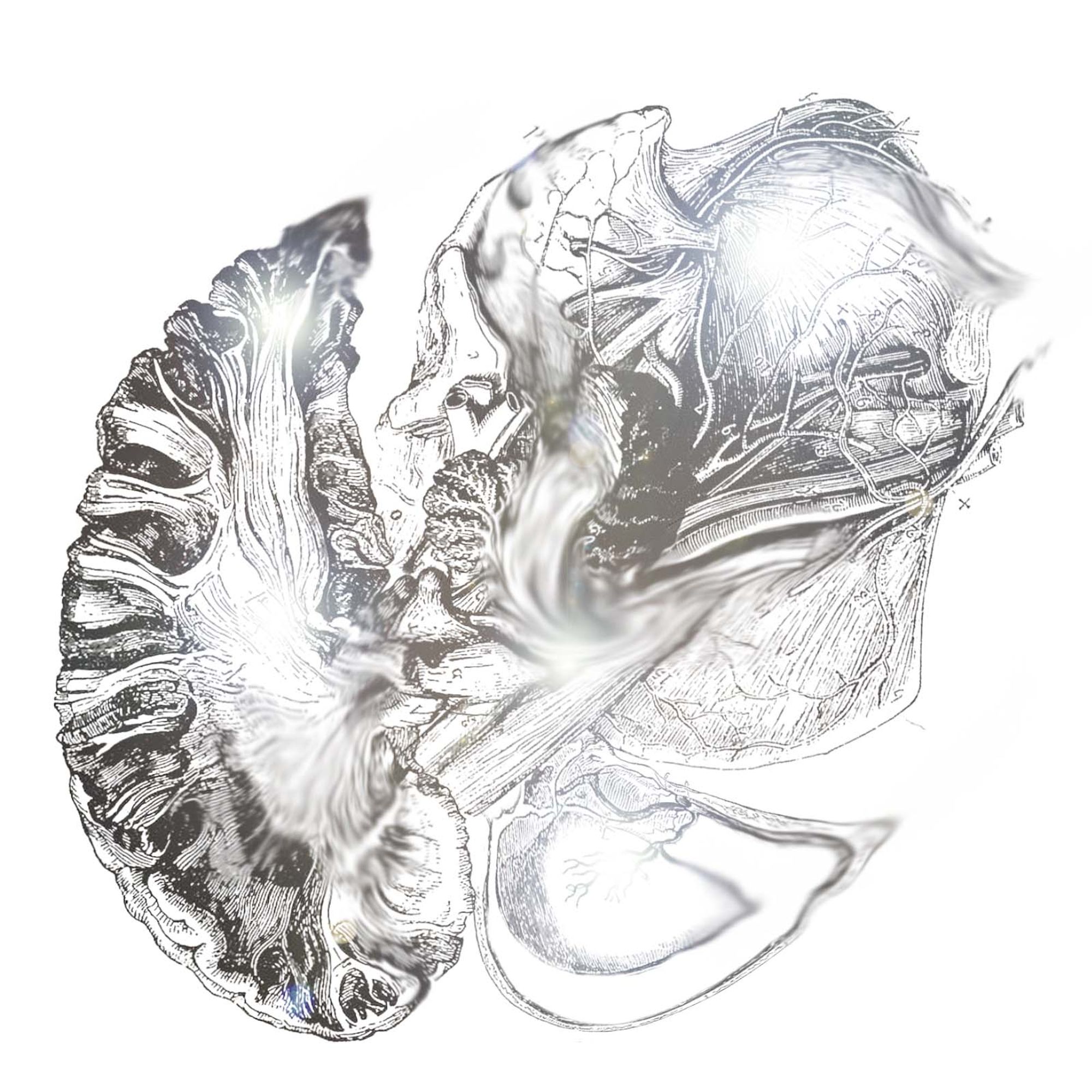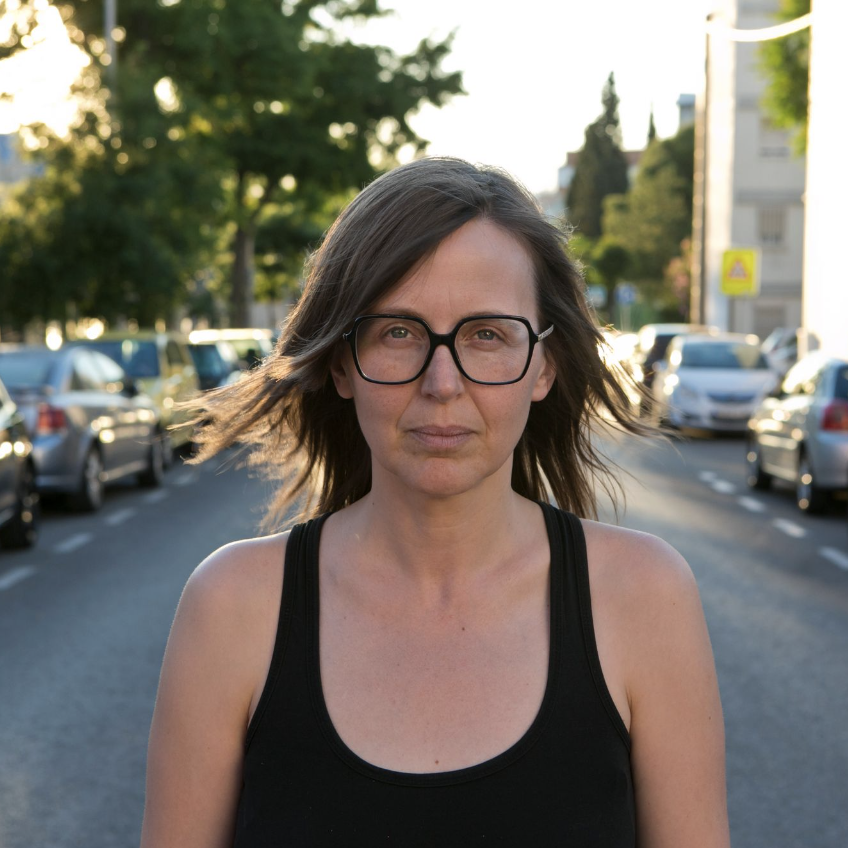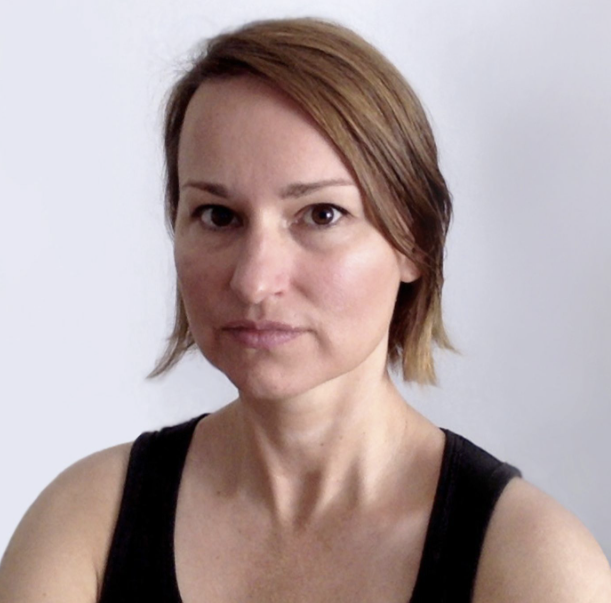
RE/PROGRAMMING articulates questions and concerns around the pressure on and the needs of Institutions of Higher Arts Education, which emerge in dialogue with the changing landscape of education, policies and economic developments.

Marta Malo de Molina is a translator and feminist researcher. She had to forget everything she learned at university in order to do something worthwhile. Action research and popular pedagogy are her greatest passions. She is editor and co-author of “Nociones comunes. Essays between research and militancia”, “A la deriva por los circuitos de la precariedad femenina”, “Madrid: ¿la suma de todos?”, “La internacional feminista. Luchas en los territorios y contra el neoliberalismo” and “Estamos para nosotras: siete tesis para una práctica radical de los cuidados”. She is part of La Laboratoria. Espacio de Investigaciones Feministas www.laboratoria.red. When she grows up she wants to devote herself exclusively to accompanying others in writing.

Lina Dokuzović works at the intersection between visual art and research/knowledge production. She studied Fine Arts and received a Ph.D. in Cultural Studies from the Academy of Fine Arts Vienna. She was chairperson of the VBKÖ (Austrian Association of Women Artists) from 2011–2013. She has been working with the eipcp as a researcher and co-editor of the multilingual web-journal Transversal since 2009. Her work deals with the topics of migration; knowledge production and educational policies; mechanisms of appropriation and privatization of structures such as education, culture, the body, and land; and perspectives for trans-local solidarity. She has been actively involved in knowledge-based social movements in Europe and abroad. She has worked extensively on these topics and has dedicated the book Struggles for Living Learning (2016) to this topic and these struggles.
Learn more about traveling in time, futures thinking and Live Action Role-Play...
RE/PROGRAMMING was formed in 2022 due to dissatisfaction with the role of Arts institutions in society which focus more on fulfilling economic needs. Their goal is to foster diversity and make institutions re-programmable. They aim to develop arts schools that serve students in reprogramming the institution itself, rather than schools that attempt to reprogram students. Emphasising the importance of education as a human right and rejecting the prioritisation of economic measurements over human well-being. The RE/PROGRAMMING group continues to highlight the need for arts institutions to facilitate the renewal of society.
The group operates within the Special Education Zone, encouraging diversity, embracing conflict, providing space for failure, and promoting shared knowledge and experiences. These zones are not geographically fixed and can be reprogrammed at any time.
In their absence, a letter was sent by Howoyolitobena, a longstanding member of RE/PROGRAMMING, emphasising the importance of unlearning, radical reprogramming, and creating a free-spirited and engaged learning environment. It discusses the impact of exclusionary visa policies on education and advocates for a practice of migration in thought and practices.
Dear Colleges
It’s a day of celebration! Today, we come together for the first meeting of this exciting journey! – And I can’t tell you how sad I am not to be able to be present in person. After all these preparations, it would have been an honour to listen to your voices. Under the given circumstances, I am urged to contribute my voice by writing this letter to you.
We all remember those days of the early 2020s when the wave of conferences about the undercommons was about to fade away, and the SoC invited us all to make proposals for a radical Re-Programming of art education. What a journey since.
I’m so excited, we have found a way to convert our academy into a legalised Special Educational Zone, hacking and mimicking its Economic alter ego to the better. This bastard of a juridical outburst within the Humaoplantanimal Rights. It feels so good that we were able to turn it upside down, and create the most free-spirited and engaged zone of learning and unlearning – it’s just what the world would have needed already since we met the first time.
Our proposal needed time to embark, but here is, what I’m so proud of The Study Program REPROGRAM, and even more proud I am to be able to say it found its safe space in the first Special Educational Zone. Undisturbed by those economic phantasmagorias of the outside, undisturbed by those pychotisms of excluding identity politics; able to focus on what is needed at the ground of our societies and eager to stay with the troubles any true encounter, any not-knowing, and any care needs.
At this point, I would like to thank Lina Dokuzović for the brilliant lecture we just heard, throughout which she was able to draw the painful line – like a cutting scalpel over tender skin – between the system of public education and the visa policy of many countries. The impact such policies have on the bones, heads, and hearts of our education is immense and almost irreparable. Education as a practice of exclusion has to be eradicated and inverted into a practice of migration – migration of thought, and practices, as much as the free migration of people, and other species. Dynamic diversity is what keeps us alive!
Within our Zone, things go differently. What the difference is shall be discussed in this meeting, and I would like to contribute here my key statements:
The marginalised is inverted to the central;
The center shall be particularised and diversified;
The deprived will hold agency;
The curriculum does not teach;
By that I mean, RE/PROGRAMMING invites a constant dance of reinvention; the dichotomies between learning and teaching, belonging and not belonging, nature and culture are obsolete. Everything is a transparent part of one learning body, which we called in the old days „research.“
Of course, in our post-holacratic time, collective self-organisation will here be the anchor, and all copy and author rights will finally – after a long fight – be abolished and replaced with the honourable rights of the commons.
I wish you all an embodied meeting.
Aliveness.
Your Howoyolitobena,
NN
What are your favourite inputs on the futures of institutional structures and strategies?
Share them with us in the comment function below.
Discussion
No feedback has been added yet
Share a Thought